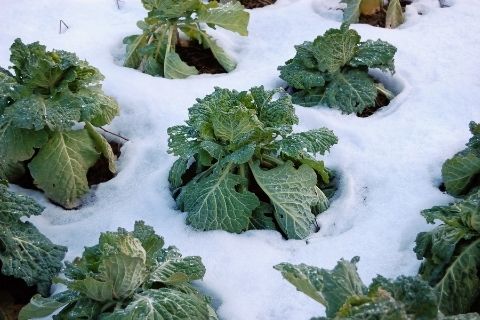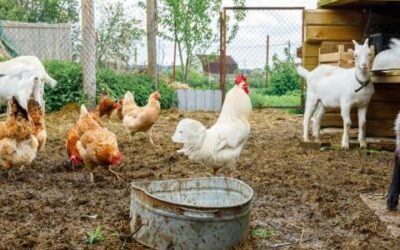
Before fall comes to a close, there are some loose ends in your lawn that you need to take care of. Though the first frost has long since come and gone, there are still some essential chores you can do to make your vegetable garden brighter next spring. Don’t let your vegetable garden sit untended until the warm weather comes back—use these tips to prepare your vegetable garden for winter before you start hibernating in your home.
Dispose of Old Plants
Your vegetable plants shouldn’t sit in the garden all year long. Diseases or pests from the plants’ roots can cripple their growth next season. Though these plants were your babies through one of the toughest years of your life, the show must go on, and the next cycle must begin. Once you have harvested all your vegetables, pull out the whole plant and check for signs of disease. If the plant seems healthy, you can break it down into smaller pieces to throw into your compost pile. If there are signs of disease, burn or dispose of the infected plant properly. The only reason not to dispose of a plant is if it is a healthy perennial that will come back next year.
Weed Out the Garden One Last Time
Now that you’ve held a tear-jerking funeral for your favorite vegetable plants, you need to make sure your garden is safe from the typical soil invaders. Well-hidden weeds that remain in your garden’s soil over the winter will have a jump-start in the spring. Schedule a final day for weed control to eliminate the threat of these pesky plants. Make sure to pull the entire weed out with its roots. A shallow soil tilling will break up any leftover roots and potential pest nests.
Apply Mulch To the Garden Bed
It may seem silly to apply mulch to an empty garden bed, but the benefits make mulching one of the best tips to prepare your vegetable garden for winter. Think of your soil as if it were the body of your garden. You must take care of the inner workings of the body before you can tend to its external beauty. Therefore, it’s important to care for your soil just as much as you would care for your vegetables because the soil holds the plants in its loving, dirty embrace. Applying a layer of shredded straw mulch will prevent weed growth and hold moisture within the soil. If you have vegetables that you planted early—bulb veggies like onions and garlic are common examples—the mulch will protect the fragile plants from freezing temperatures. Mulching also keeps soil inside your garden, instead of in rain or snow-melt runoff.
Organic mulches, such as straw mulch, provide extra fertilizer in the spring. During the planting season, you can either plant directly into the mulch or gently till it into the soil. Make sure your straw mulch comes from a trustworthy supplier, like Lucerne Farms, or you will risk adding weed seeds to your garden instead of preventing against them.




